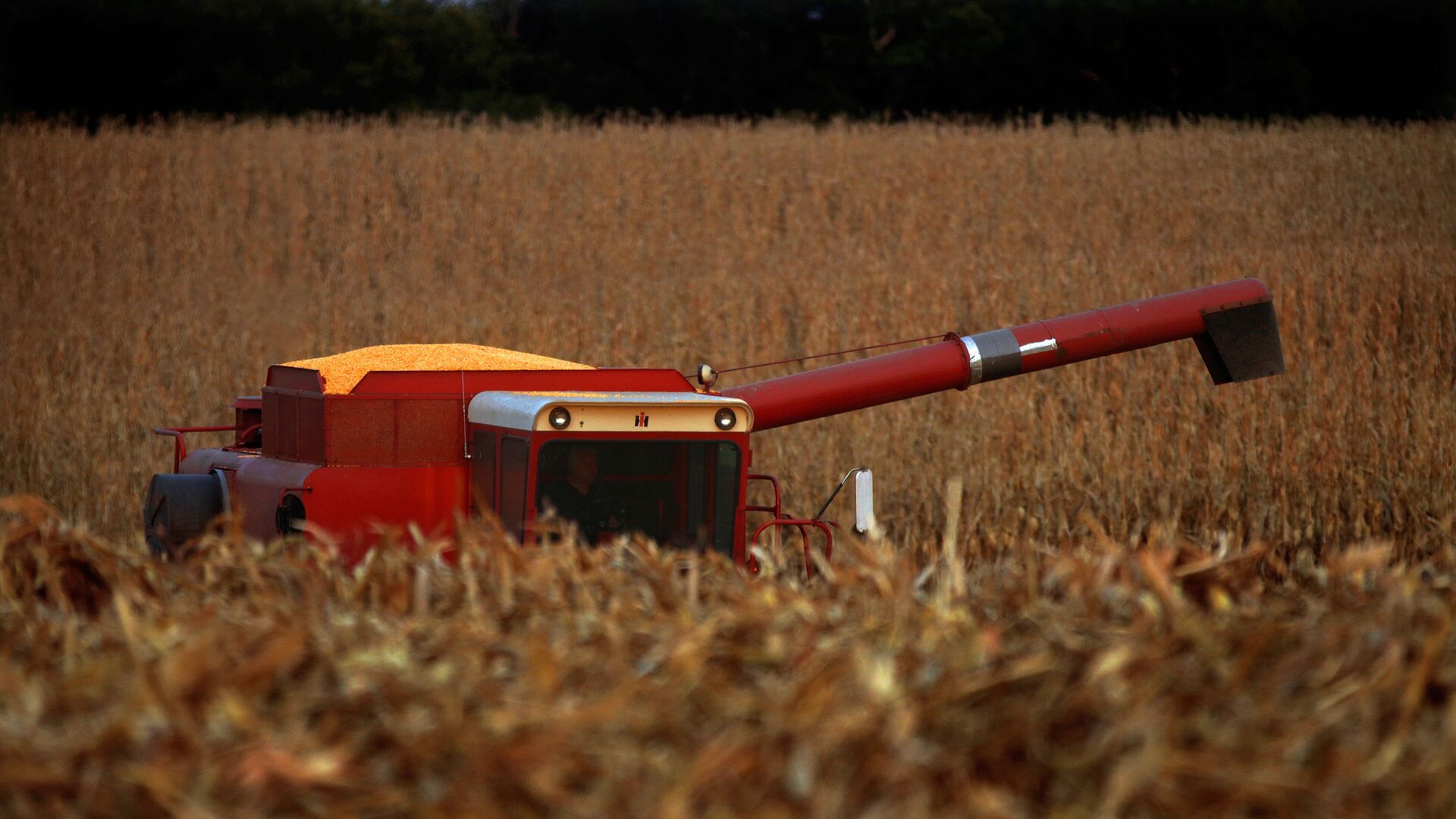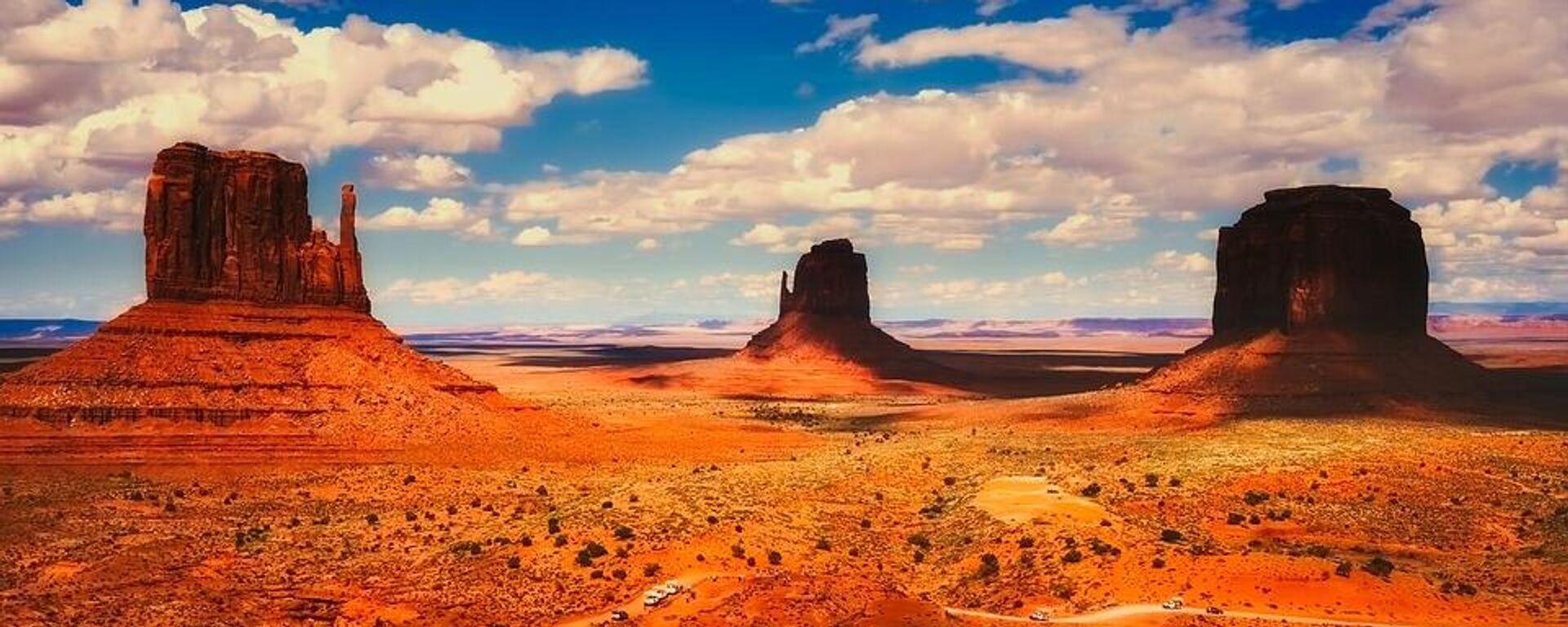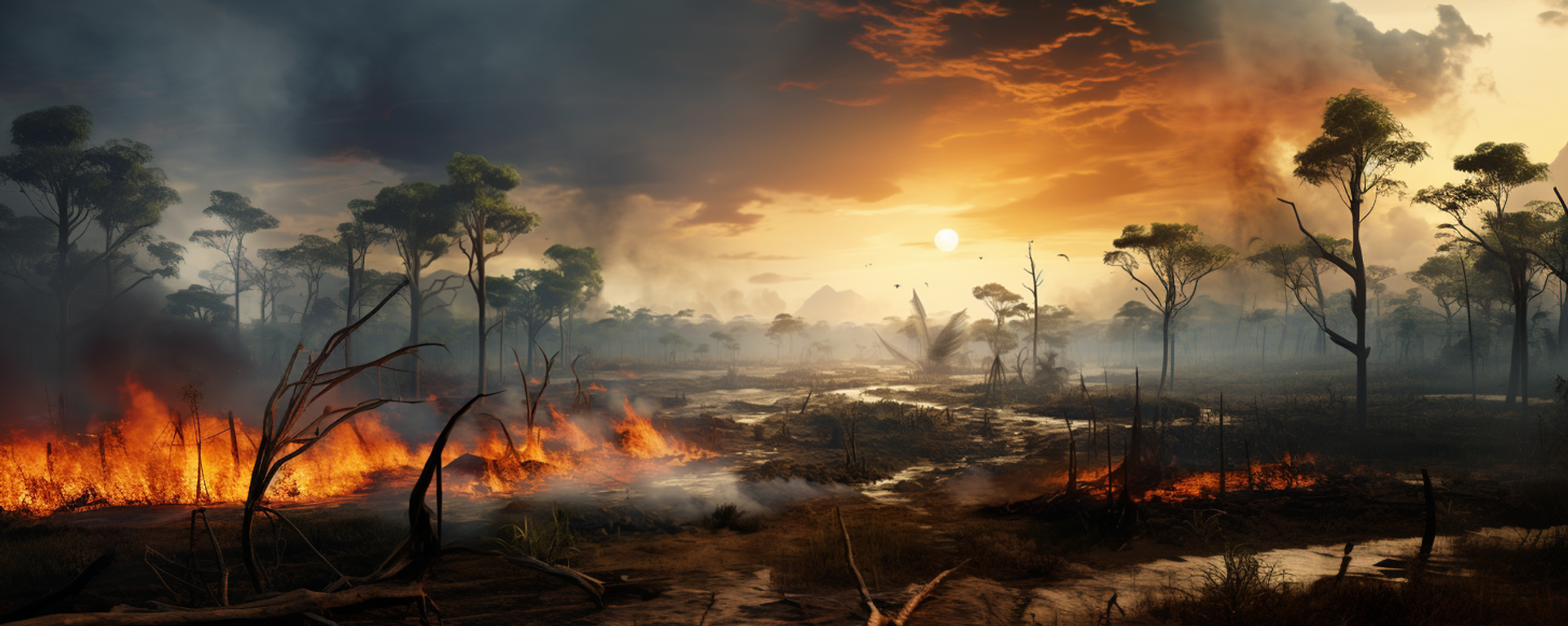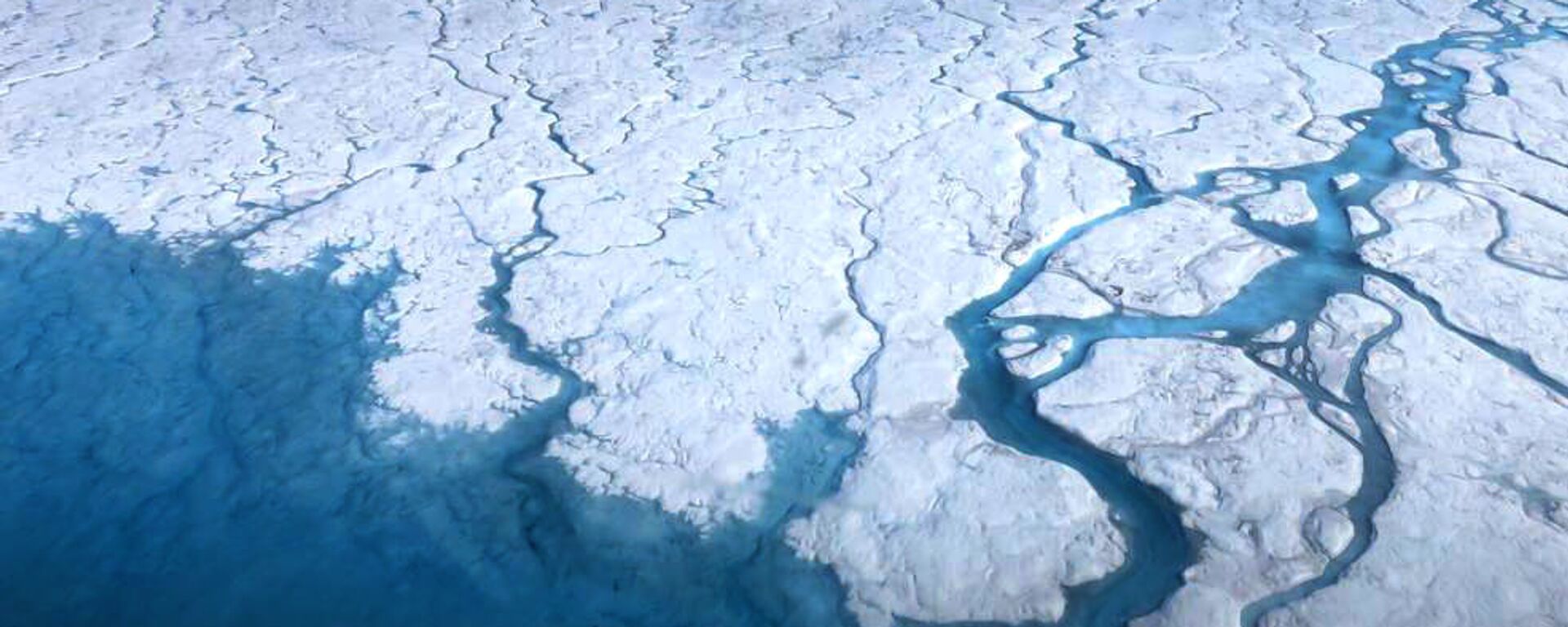https://sputnikglobe.com/20230725/farm-bill-must-protect-us-small-farmers-encourage-climate-change-mitigation-1112138869.html
Farm Bill Must Protect US Small Farmers, Encourage Climate Change Mitigation
Farm Bill Must Protect US Small Farmers, Encourage Climate Change Mitigation
Sputnik International
Federal lawmakers are rushing to prepare a massive new Farm Bill, a piece of omnibus legislation passed every five years that concerns a host of programs related to agriculture and nutrition in the United States.
2023-07-25T18:10+0000
2023-07-25T18:10+0000
2023-07-25T18:10+0000
analysis
us department of agriculture (usda)
farm bill
agriculture
climate change
https://cdn1.img.sputnikglobe.com/img/07e4/0b/02/1080958584_0:0:3001:1688_1920x0_80_0_0_ee7b7208289fd9fe8e43a36d708a1258.jpg
Jim Goodman, a retired Wisconsin organic dairy farmer and board member of Family Farm Defenders, told Radio Sputnik on Tuesday that the new Farm Bill will have to do a lot more than just ensure crops make their way to market: it needs to tackle meaningful justice issues ranging from climate change to the lasting legacies of slavery and the enclosure of indigenous lands, too."I think people who just don't even know about farming need to pay attention to the farm bill, because especially nutrition programs are a huge part of it and a lot of people depend on the SNAP program," Goodman told Sputnik, referring to the Supplemental Nutrition Assistance Program, better known as "food stamps."However, drafters of the new Farm Bill will face an additional uphill fight this year, thanks to the agreement hammered out in early June that raised the debt ceiling. In order to avoid a catastrophic default, Democrats agreed to spending caps for the coming fiscal year, including upper limits on discretionary funding - the portion of the budget from which funding for the Farm Bill’s programs would be drawn. That means a scramble for the precious funding allowed under the deal."I think in a general sense, if money is not made available to support programs in the farm bill, those programs aren't going to work," Goodman told Sputnik. "You know, we seem to have no problem exempting military spending, but a lot of times programs that would benefit everyone be they nutrition programs, health care, climate mitigation, those are the ones that generally seem to bump up against the debt ceiling and spending limits that Congress seems to impose.""The farm bill is for everyone. It impacts everyone. You know, you mentioned climate: agriculture is responsible, depending on who you talk to, for maybe 10% of greenhouse gas emissions. And there are bills that will eventually become part of the Farm Bill that help farmers to mitigate that, help them sequester more carbon, keep cover crops. And I'm sure there are some bills that are trying to make their way into the Farm Bill that will establish carbon markets - which I don't think is a good idea because it's great to have farmers sequester carbon and be paid for it, but if you sell those credits to some corporation to allow them to continue to pollute, we really don't do anything to address the climate problems,” he explained.Goodman explained that the impact of climate change on agriculture varies across the country, with weather, crops, and government policies and regulations differing between states and regions."It varies a lot across the country. And of course, now we see the heat dome down in Texas, in the South, where a lot of vegetables are grown. I think you have to look at the farm workers who have to be out there every day in this oppressive heat, harvesting the food crops for everyone. We saw the governor of Texas - and this wasn't specifically related to farming - but he banned mandatory water breaks for workers. So I think it affects farm workers a lot. In some parts of the country, as in Wisconsin, where we're under drought now. And it's really difficult to take care of your animals, to grow decent crops, if you don't get rain. We can't all afford irrigation and I don't think we'd all want to."Goodman noted that the final omnibus bill is still being assembled, but that some proposed bills include disaster relief programs for farmers affected by droughts, hurricanes, and other weather events that destroy their crops or flocks."One that we're aware of is called the Agricultural Resiliency Act, which has money available for climate resilience or to help farmers sequester more carbon in the soil. So there are things there that we hope to add," the farmer said. "And I think a lot of the research that is funded through the Farm Bill and university research to help farmers figure out ways to live through climate changes, to develop different kinds of scenes that are more drought tolerant. These are all things that farmers depend on and as the climate continues to change, we need that."Other bills he noted were the Justice for Black Farmers Act and the Farmland for Farmers Act, which he said were needed to give farmers the ability, especially Black farmers, to to correct the injustices that USDA [US Department of Agriculture] [perpetuated] over generations.”Goodman also noted the tension between increasing access to locally produced food and the increasing integration of farmers into a "global marketplace." He noted one bill, the Local Farms and Food Act, that could help "establish regional food systems and farmers markets.""I think the closer you can produce food to the people who need it, the better off you are. You know, we always talk about food miles, food shipped across the country - certainly that doesn't do any good for the environment and certainly it doesn't help people get fresh, locally produced food," he noted."You know, when this country was founded, we had very strong import restrictions to protect our farmers and small businesses. And now with global corporations, it doesn't really make any difference to them where they buy or where they sell it, as long as they can buy cheap and sell high, and I think that really has an impact not just on small farmers and businesses here, but small farmers all over the world who don't have a seat at the table, can't get into that huge global marketplace. Very few farmers directly export. It's all done through large corporations that do that.""So, I think we have to seriously look at protecting our farmers and farmers around the world. We're all kind of caught in this death spiral to the bottom: whoever can produce the cheapest best to sell their stuff. And that does not bode well for adequately feeding people here or anywhere else in the world."For more in-depth analysis of todays' news, check out our Sputnik Radio show By Any Means Necessary
https://sputnikglobe.com/20230721/record-long-and-intense-heat-set-in-phoenix-arizona-1974-record-broken-1112047964.html
https://sputnikglobe.com/20230707/climate-doom-loops-may-start-much-earlier-than-predicted-study-finds-1111710206.html
https://sputnikglobe.com/20230720/rediscovered-greenland-soil-sample-suggests-warm-wet--largely-ice-free-future-for-planet-earth-1112021556.html
Sputnik International
feedback@sputniknews.com
+74956456601
MIA „Rossiya Segodnya“
2023
News
en_EN
Sputnik International
feedback@sputniknews.com
+74956456601
MIA „Rossiya Segodnya“
Sputnik International
feedback@sputniknews.com
+74956456601
MIA „Rossiya Segodnya“
farm bill; climate change; drought; rain; heat dome
farm bill; climate change; drought; rain; heat dome
Farm Bill Must Protect US Small Farmers, Encourage Climate Change Mitigation
Federal lawmakers are rushing to prepare a massive new Farm Bill, a piece of omnibus legislation passed every five years that concerns a host of programs related to agriculture and nutrition in the United States.
Jim Goodman, a retired Wisconsin organic dairy farmer and board member of Family Farm Defenders,
told Radio Sputnik on Tuesday that the new Farm Bill will have to do a lot more than just ensure crops make their way to market: it needs to tackle meaningful justice issues ranging from climate change to the lasting legacies of slavery and the enclosure of indigenous lands, too.
"I think people who just don't even know about farming need to pay attention to the farm bill, because especially nutrition programs are a huge part of it and a lot of people depend on the SNAP program," Goodman told Sputnik, referring to the Supplemental Nutrition Assistance Program, better known as "food stamps."
"A lot of people talk about farmers, but they don't really understand what goes on farm. I always think of when Jesse Jackson ran for president in 1988, he said the best urban policy has to begin with the best rural policy, because what goes on in rural areas definitely affects people in urban areas. Everyone eats, everyone is subject to the same problems with climate," he said.
However, drafters of the new Farm Bill will face an additional uphill fight this year, thanks to the agreement hammered out in early June that raised the debt ceiling. In order to avoid a catastrophic default, Democrats agreed to spending caps for the coming fiscal year, including upper limits on discretionary funding - the portion of the budget from which funding for the Farm Bill’s programs would be drawn. That means a scramble for the precious funding allowed under the deal.
"I think in a general sense, if money is not made available to support programs in the farm bill, those programs aren't going to work," Goodman told Sputnik. "You know, we seem to have no problem exempting military spending, but a lot of times programs that would benefit everyone be they nutrition programs, health care, climate mitigation, those are the ones that generally seem to bump up against the debt ceiling and spending limits that Congress seems to impose."
"I guess I'd be more in favor of looking at helping people survive, doing mitigation of climate excesses rather than more money for guns and bombs," the retired farmer added.
"The farm bill is for everyone. It impacts everyone. You know, you mentioned climate: agriculture is responsible, depending on who you talk to, for maybe 10% of greenhouse gas emissions. And there are bills that will eventually become part of the Farm Bill that help farmers to mitigate that, help them sequester more carbon, keep cover crops. And I'm sure there are some bills that are trying to make their way into the Farm Bill that will establish carbon markets - which I don't think is a good idea because it's great to have farmers sequester carbon and be paid for it, but if you sell those credits to some corporation to allow them to continue to pollute, we really don't do anything to address the climate problems,” he explained.
“So that's the thing about the farm bill: just like any omnibus bill, there's good parts and there's bad parts, and we can only hope that more of the good things float to the surface,” Goodman said.
Goodman explained that the impact of climate change on agriculture varies across the country, with weather, crops, and government policies and regulations differing between states and regions.
"It varies a lot across the country. And of course, now we see the heat dome down in Texas, in the South, where a lot of vegetables are grown. I think you have to look at the farm workers who have to be out there every day in this oppressive heat, harvesting the food crops for everyone. We saw the governor of Texas - and this wasn't specifically related to farming - but he banned mandatory water breaks for workers. So I think it affects farm workers a lot. In some parts of the country, as in Wisconsin, where we're under drought now. And it's really difficult to take care of your animals, to grow decent crops, if you don't get rain. We can't all afford irrigation and I don't think we'd all want to."
"We in Wisconsin in the last years I farmed saw precipitation remain roughly the same: most of it came in the spring or the fall, and in the summer when the crops are growing and really needed that we didn't get it. And a lot of people, of course, say, well, 'weather changes all the time'. Well, that's true, but climate doesn't, and I think anyone who denies the fact that we are living in a changing climate is just wrong."
Goodman noted that the final omnibus bill is still being assembled, but that some proposed bills include disaster relief programs for farmers affected by droughts, hurricanes, and other weather events that destroy their crops or flocks.
"One that we're aware of is called the Agricultural Resiliency Act, which has money available for climate resilience or to help farmers sequester more carbon in the soil. So there are things there that we hope to add," the farmer said. "And I think a lot of the research that is funded through the Farm Bill and university research to help farmers figure out ways to live through climate changes, to develop different kinds of scenes that are more drought tolerant. These are all things that farmers depend on and as the climate continues to change, we need that."
Other bills he noted were the Justice for Black Farmers Act and the Farmland for Farmers Act, which he said were needed to give farmers the ability, especially Black farmers, to to correct the injustices that USDA [US Department of Agriculture] [perpetuated] over generations.”
"The Farmland for Farmers Act, which restricts corporate ownership, which would definitely make it easier for small farmers to get into farming, because when corporations, be they foreign corporations or investment funds in the United States buy up farmland, they raise the price to the point where small farmers and beginning farmers, farmers of color, indigenous people can’t afford to buy that land. So we just see this continuing trend of consolidation and farmland ownership. And consolidation begets more consolidation. As farms get bigger, the processing industry gets bigger and it just shuts small people out of the market, limits food choices, and really allows food prices to rise because the market is so tightly controlled by just a few entities."
Goodman also noted the tension between increasing access to locally produced food and the increasing integration of farmers into a "global marketplace." He noted one bill, the Local Farms and Food Act, that could help "establish regional food systems and farmers markets."
"I think the closer you can produce food to the people who need it, the better off you are. You know, we always talk about food miles, food shipped across the country - certainly that doesn't do any good for the environment and certainly it doesn't help people get fresh, locally produced food," he noted.
“I think that anyone who knows anything about agricultural marketing knows that it depends on a global marketplace. And we expect to export our excess grain or dairy or whatever it is, and other countries should pick that up for us as we continue to produce more and more. So I think any time you're talking about bills to protect farmers, part of that has to be dealing with imports and exports.”
"You know, when this country was founded, we had very strong import restrictions to protect our farmers and small businesses. And now with
global corporations, it doesn't really make any difference to them where they buy or where they sell it, as long as they can buy cheap and sell high, and I think that really has an impact not just on small farmers and businesses here, but small farmers all over the world who don't have a seat at the table, can't get into that huge global marketplace. Very few farmers directly export. It's all done through large corporations that do that."
"So, I think we have to seriously look at protecting our farmers and farmers around the world. We're all kind of caught in this death spiral to the bottom: whoever can produce the cheapest best to sell their stuff. And that does not bode well for adequately feeding people here or anywhere else in the world."
For more in-depth analysis of todays' news, check out our Sputnik Radio show By Any Means Necessary 




